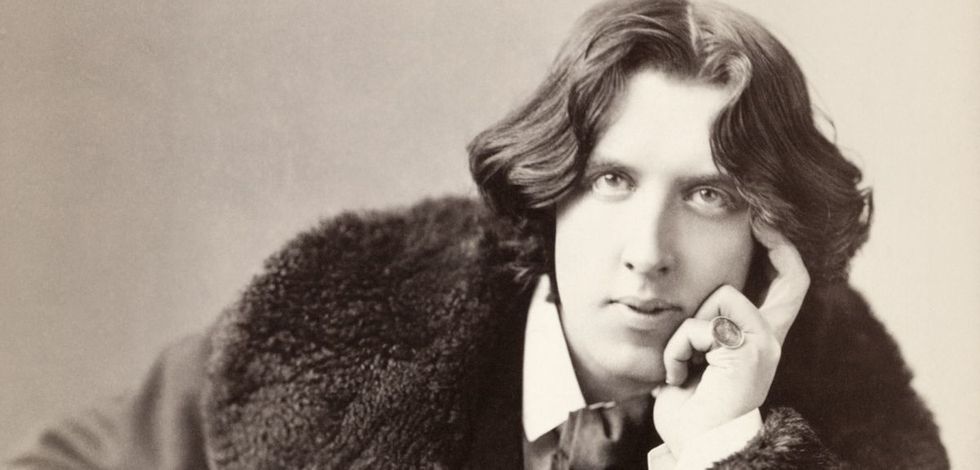"Everything is going to be fine in the end. If it's not fine, then it's not the end."
Oscar Wilde, author extraordinaire, is known to many in this world as a very witty man. Endless publications and written masterpieces aside, Wilde filled this world in his everyday life with some of the greatest quips and quotes known to man. "I can resist everything except temptation." "Be yourself; everyone else is taken." "I am so clever that sometimes I don't understand a single word of what I am saying." He had a knack for simply speaking the truth in such ways that you'd chuckle a bit before proceeding to profoundly agree.
As far as his quote above is concerned, I am thoroughly convinced that it was simply waiting on the tip of Wilde's tongue one day for the chance to make an entrance. He thought about the world at large, considered both the good and the bad, and in an instant decided that the bad was simply a speed bump to the good to be found. Just around the riverbend, light at the end of the tunnel, along the silvery lining of a cloud, there is a path to take out from beneath the weight of what one is going through.
Now see, here's the thing. Regardless of what he may have spoken, Wilde's own life is not a traceable series of ups and downs with ups completing his time. His story, particularly the end, is fiercely marred with tragedies in his personal life and drama that followed him all the way up until he died. I don't know who would consider his end to be fine or who would argue that he didn't have to trudge through the worst of the world simply to get to the end at all.
But I don't think that expecting a traceable series of ups and downs was what Wilde meant when he said this.
One of my favorite quotes from Oscar Wilde, aside from the one above, is simply this: "To live is the rarest thing in the world. Most people exist, that is all." When Wilde said that if life isn't fine, it's not the end, it was not a PSA to expect the upswing any day now. It was not a relaxed announcement to kick back and wait for the storm to pass, as you'd be guaranteed it would. Wilde saw firsthand just how ugly the world could be. He took every punch, every fall, every mistake, every loss. He went into a life of tragedies and pain and chose, above all else, to live.
Wilde realized that life is precious and finite. It is a gift to be treasured and used to the utmost. He did not gloss over the bad in the world; he simply charged the world not to let the bad bring everything to a stop, to bring it all crashing down. What Wilde meant with this quote was that the worst possible moments in life do not last, nor can they define what life is.
When a person chooses to live, they choose to view the bad as merely a speed bump, stripping it of its power no matter how large in one's life it may loom. They refuse to allow the bad to stop them from seeing the good, from being alive. This quote isn't trying to diminish the value of someone's suffering - the struggles of this world are painfully valid. But Wilde wanted a rich life for everyone. He wanted people to see just like he had, where there was good even in the midst of the bad. He fought to see the brighter side of life.
Wilde's last words were "The wallpaper and I are fighting a duel to the death. Either it goes or I do." In his very last moments alive, he saw a brighter side to being where he was and sent his final bit of wit into the world, likely with the hopes of making someone else smile. Oscar Wilde realized that a person could find their own "fine." The raging storms of life can't keep down a person who knows what fine means to them. Fine, despite all of the world's bad, is choosing to do more than wait through existence. Fine is seeing life come at you with everything it has and choosing to live.














